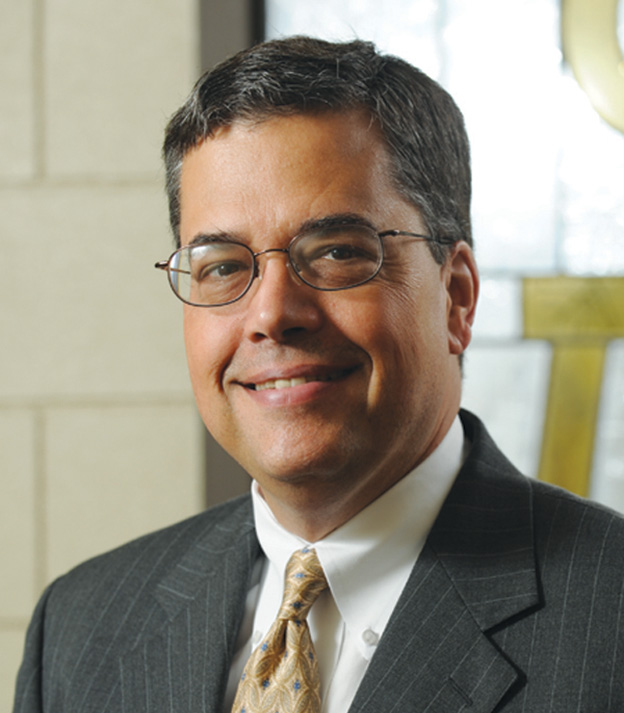Watch the Hodgins Lecture live here Tuesday

At the Hodgins Memorial Lecture on March 10, Peter Kilpatrick of the University of Notre Dame will provide an overview of the history of higher education from its liberal arts roots in late antiquity to the specialized degrees today.
What is the purpose of higher education? What makes an engineering degree unique?
During the 31st annual J.W. Hodgins Memorial Lecture on Tuesday, March 10, Peter Kilpatrick of the University of Notre Dame will explore these issues and provide an overview of the history of higher education from its liberal arts roots in late antiquity through to the emphasis on specialized degrees today.
Kilpatrick, the McCloskey Dean of Engineering, will examine how engineers can express their unique role in society, which enables them to understand technology and how to apply it to improve the world.
Leading up to his lecture at McMaster, Kilpatrick shared his thoughts on why educators should focus more on grooming students to become good citizens then gaining specialized skills.
Q: You’re clearly an accomplished chemical and biomolecular researcher yet your lecture has a strong philosophical theme. Why was it important for you to explore the history of higher education and its purpose?
P: I think all educators, and particularly educational administrators, should be deeply interested in and concerned with the underlying philosophical foundations and “reasons for being” of universities. At this time in the history of higher education, we are seeing increasing global competition and, at least in the United States, but also in many other countries, we are seeing significant cost pressures to reduce the costs associated with a university education. This necessarily forces one to look carefully at the purpose and meaning of higher education, and how to articulate the particular value of the education at one’s university.
Q: Your lecture will explore what makes an engineering degree unique and its higher meaning and purpose. Why do you think it’s important that engineers be able to articulate why they’re engineers?
P: What makes engineering education and an engineering degree unique is that, at essence, it is a degree in which you learn both how to analyze and critically think through a societal problem or challenge, and how to create the solution to that challenge. So it is, in a very real sense, both analytical and creative. Or to use the language of the brain: both left-brained and right-brained.
So in a real sense, an engineering education is already something of an integration of modes of thinking and learning. More importantly, though, is why someone would want to become an engineer. The ultimate purpose of engineering is to serve society and humankind, so an intrinsic aspect of engineering should be a person’s generosity and compassion for the human condition.
I believe it is essential that engineering students discover this and learn how to articulate it well.
Q: What do you think about higher education today with its focus on specific skills/degrees versus the broader scope in years past?
P: As you might be able to tell from my answers to your questions so far, I think the increased specialization of higher education poses some important challenges to society.
As I will discuss in my talk, the ultimate purpose and meaning of a higher education is not to specialize in a subject so as to develop a useful vocation or skill (although that certainly can and should be a byproduct of a higher education).
The real purpose of a university education is to equip us well to be good persons and citizens and to contribute importantly to the forging of a just, peaceful, and sustainable society. And this necessarily requires great attention to the formation of important attributes in persons, many of which I will discuss in my lecture.
About the event
The free event takes place Tuesday, March 10, 2015 from 4:30 to 5:30 at the McMaster University University Club, Great Hall.
For more details on the event click here.
Can’t be there? Watch the live webcast of the J.W. Hodgins Memorial Lecture here starting at 4:30 p.m.
The J.W. Hodgins Memorial Lecture was established by the Faculty of Engineering in 1983 as a memorial to Dr. John W. Hodgins, McMaster’s first Dean of Engineering. Each year, a prominent guest is invited to share their insights into how technological and scientific advancements are reshaping our society.


